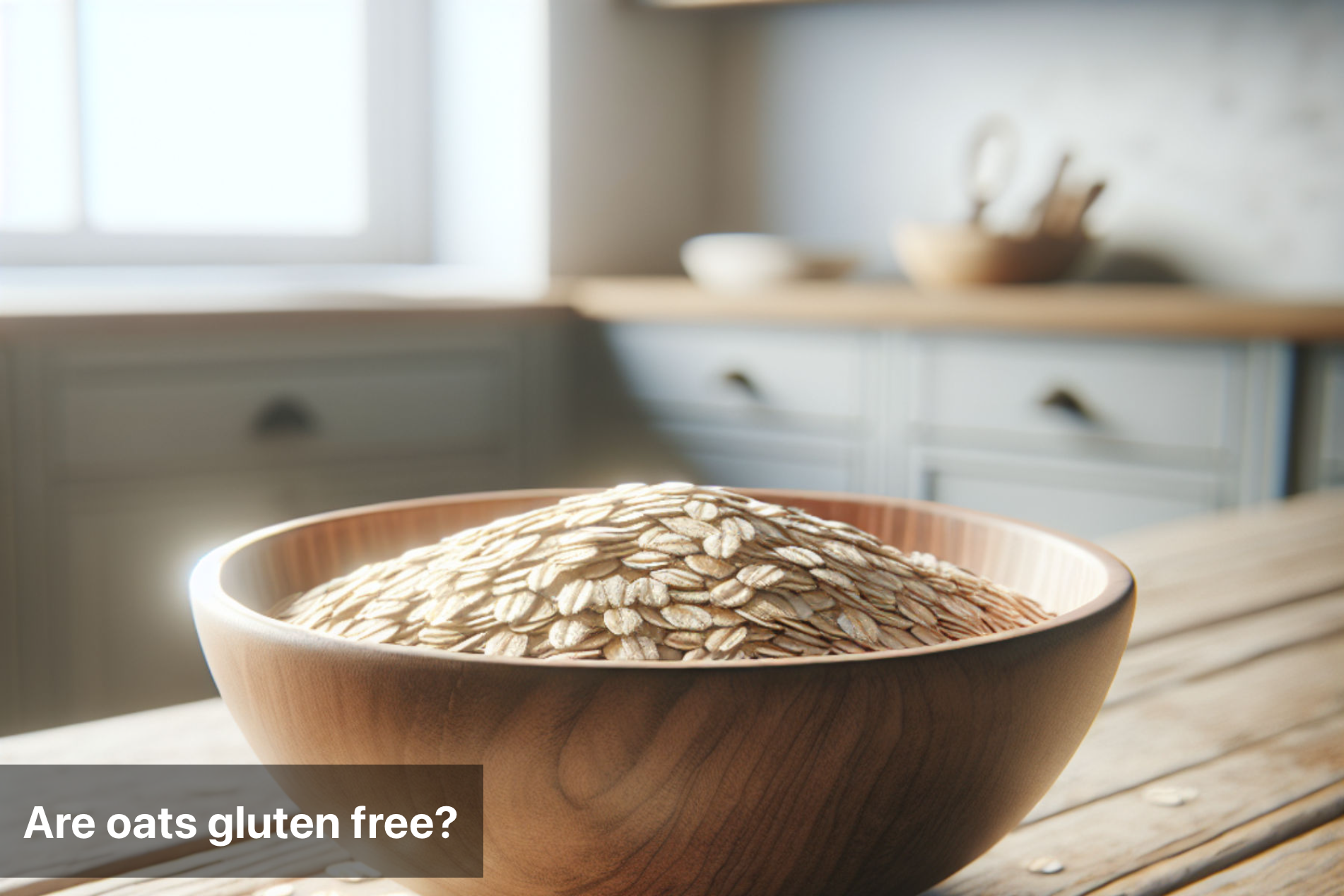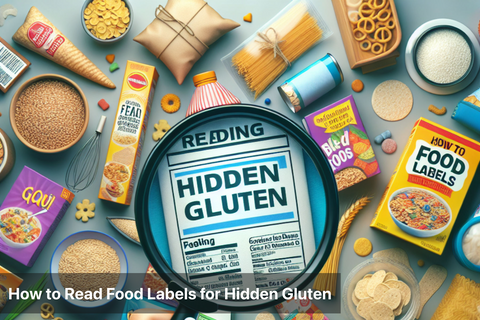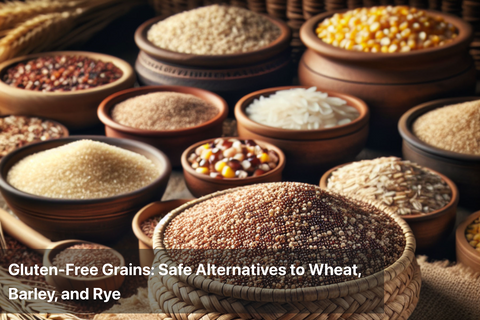
Are oats gluten free?
In the realm of dietary concerns, the term gluten often emerges as a topic of discussion. Gluten is a composite of proteins found in wheat and related grains, such as barley and rye. It provides elasticity to dough, aiding in the shaping of various baked goods. While some individuals must consciously avoid gluten due to medical conditions like celiac disease or gluten intolerance, others opt for a gluten-free lifestyle for personal reasons.
The confusion arises when pondering the gluten content in oats. Oats, in their pure form, do not inherently contain gluten. However, due to cross-contamination during processing or packaging, oats can sometimes harbor gluten traces. This contamination raises doubts regarding the gluten-free status of oats and poses a challenge for individuals seeking gluten-free alternatives.
Knowing whether oats are genuinely gluten-free is pivotal for those with gluten sensitivities or celiac disease. Understanding the nuances of gluten presence in oats can help individuals make informed dietary choices and minimize the risk of adverse reactions. By delving into the intricacies of oats and gluten, one can navigate the realm of gluten-free eating with clarity and confidence.

Are Oats Naturally Gluten Free?
-
Oats are naturally gluten-free.
-
Cross-contamination can occur during farming, processing, or packaging, especially in facilities that handle wheat, barley, or rye.
-
Certified gluten-free oats are available and processed in dedicated gluten-free facilities to avoid contamination.
-
People with celiac disease or gluten sensitivity should choose certified gluten-free oats to ensure safety.
-
Regular oats might not be safe due to potential gluten contamination.
Contamination and Cross-Contamination
Firstly, oats themselves do not inherently contain gluten. However, there is a significant risk of contamination during the growing, harvesting, and processing stages.
Moreover, many oats are processed in facilities that also handle gluten-containing grains. This presents a high risk of cross-contamination, where gluten particles may unintentionally mix with oats during processing, packaging, or transportation. This contamination can occur through shared equipment, storage containers, or even through airborne particles.
1. Contamination During Farming
-
Oats are often grown near wheat, barley, or rye fields, leading to contamination through wind, shared soil, or machinery.
2. Cross-Contamination During Harvesting
-
The same equipment is frequently used to harvest both oats and gluten-containing grains, increasing the risk of gluten contamination.
3. Contamination in Processing Facilities
-
Oats processed in facilities that handle wheat, barley, or rye can be contaminated through shared machinery, storage bins, and conveyor belts.
4. Cross-Contamination in Packaging
-
Packaging oats in factories that also package gluten-containing grains can introduce gluten, even if oats were originally gluten-free.
5. Certified Gluten-Free Oats
-
Oats labeled as "certified gluten-free" are processed in dedicated facilities to prevent cross-contamination with gluten.
6. Risk for Gluten-Sensitive Individuals
-
Cross-contamination is a significant concern for those with celiac disease or gluten intolerance, making certified gluten-free oats the safer option.
7. Label Checking
-
It’s important to check packaging labels for gluten-free certification to ensure oats are free from contamination.

Is It Safe to Eat Oats on a Gluten-Free Diet?
The topic of whether oats are gluten-free has been a point of confusion for many individuals. Despite oats being naturally free from gluten, there are factors to consider regarding contamination and cross-contamination.
It is important to note that oats themselves do not inherently contain gluten. However, the risk stems from potential contamination during the growing, harvesting, or processing stages. This contamination can occur when oats are grown in close proximity to gluten-containing grains or processed in facilities that also handle such grains.
To ensure the consumption of gluten-free oats, individuals with gluten sensitivities or celiac disease should opt for oats labeled as "gluten-free." These oats undergo strict processing procedures to prevent cross-contact with gluten.
While oats can be a part of a gluten-free diet, it is crucial to select oats that are specifically labeled and certified as gluten-free. This choice eliminates the risk of inadvertent gluten intake and allows individuals to enjoy the nutritional benefits of oats without concerns about gluten contamination.
FAQs
-
Are oats gluten-free?
While oats themselves are gluten-free, they may be contaminated with gluten during processing. It is essential to look for certified gluten-free oats if you have celiac disease or a gluten sensitivity.
-
Are regular oats safe for people with gluten intolerance?
It is recommended that individuals with gluten intolerance opt for certified gluten-free oats to avoid any potential cross-contamination or gluten exposure.
-
How can I determine if oats contain gluten?
Check the packaging for a gluten-free certification or look for products labeled as gluten-free to ensure that the oats have not come into contact with gluten-containing grains during processing.
-
Can I consume oats if I have celiac disease?
Those with celiac disease should stick to certified gluten-free oats to prevent any adverse reactions. It's crucial to verify that the oats have not been contaminated with gluten.
-
What are some gluten-free alternatives to oats?
Quinoa, amaranth, rice, millet, and buckwheat are excellent gluten-free options that can be used as alternatives to oats in recipes.
This Blog post is an initiative by Lo! Foods, to provide accurate and Nutritionist / Doctor approved information related to Health. Lo! Foods is India's leading brand for Everyday Functional Foods. Foods designed for specific Health conditions or Needs. Lo! Foods also runs India's largest range of Low Carb Healthy Cloud Kitchens, under the brand names of Lo!, ProteinChef, ATH (All Things Healthy) and DiabeSmart.















Leave a comment
Your email address will not be published.